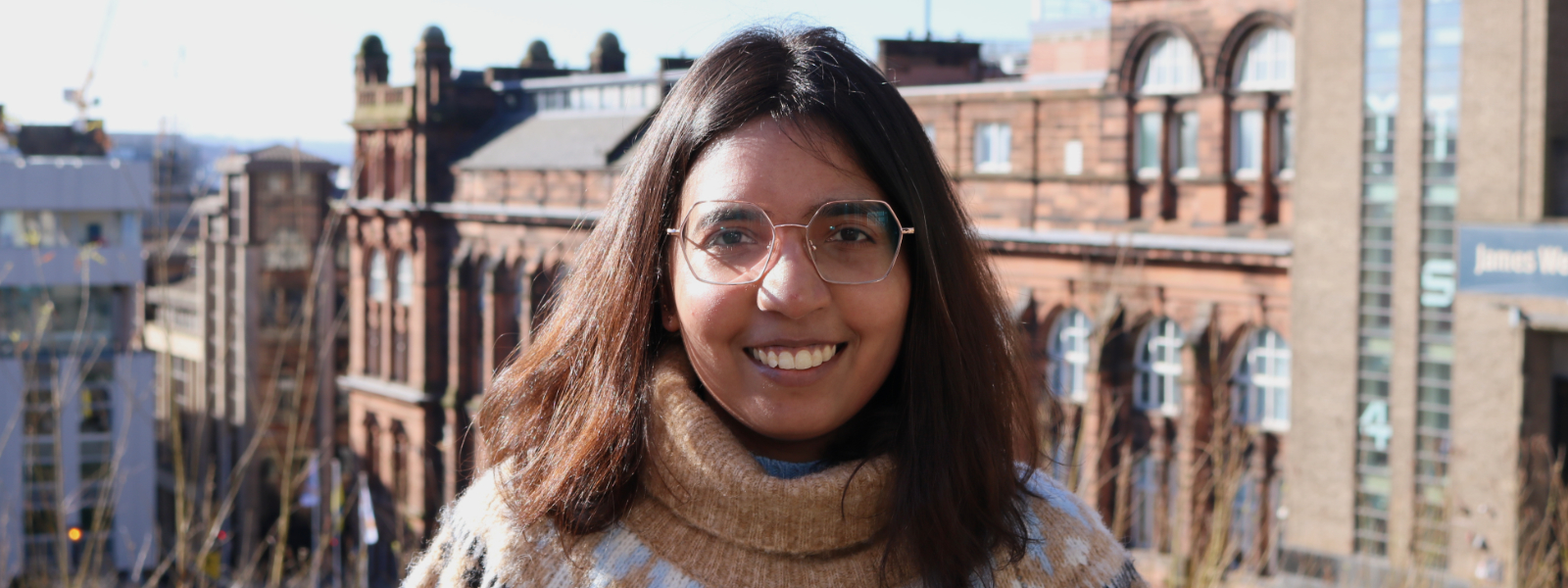
Arohi is an MSc Applied Gender Studies student at the University of Strathclyde
Arohi Panicker
I have always been inquisitive about the intricacies of gender in everyday life: from girls wearing pink and boys blue, to the cultural and social obligations for women to excel in the kitchen, and subtle gendered discrimination in public spaces.
This interest drove me to pursue a Master’s in Women’s Studies in India. This, in turn, opened a gateway to whole different world.
I explored subjects from a feminist perspective, like gender and health, the relationship between caste, class and gender, and women, sexualities and violence. I began to better understand hegemonic and patriarchal repression of women and their bodies.
I also began to feel that I belonged in the academic space of Gender Studies. I felt I had found my calling in academic research and writing. So, when I got the opportunity to further hone my skills as a social researcher, I jumped at the opportunity.
The MSc in Applied Gender Studies (Research Methods) at Strathclyde was an obvious choice. The programme is designed to provide hands-on experience of research, balanced well with theoretical grounding.
Gender theory and practice
Lectures are typically divided into two halves: the first dedicated to theory and concepts, while the second would have interlinking activities helping us to understand how this theory and these concepts materialise, function and impact our everyday reality.
A good example is a seminar in my first semester on Intersectionality in my Feminist Knowledge, Feminist Research module. We explored Kimberlé Crenshaw’s definition of intersectionality, learning how multiple forms of exclusion materialise in everyday lives in terms of access to spaces and resources.
The group exercise that followed was particularly gripping and memorable. We were asked to analyse how various intersections of gender, race, class and sexuality materialised by reflecting on the parts of our identity that we are most aware of, and the parts that provide us with the most privilege.
What was particularly illuminating was the overwhelming influence of social class and gender, and subtle similarities in its functioning in the lives of people from different socio-cultural, educational background.
Perspective and perception
Having classmates from different cultures, countries and areas of expertise further supplemented the discussion by giving us access to a wide range of perspectives. I always step out of the lecture hall a more self-aware person.
The learning is never bound to the lecture hall and often shifts to a coffee shop or the Student Union where me and my classmates address each other’s queries and share experiences and observations.
Discussions outside of class not only helped refine our knowledge of the topic but also supplemented project work and essays. Sharing our thoughts on the concept and experiences contribute towards developing a nuanced and intersectional understanding of the concept.
The program, so far, has been enlightening on an academic and personal level. The seminars discussions and hands on experience of research methods have helped bridge the knowledge gaps, nuanced my theoretical understanding and strengthened my researching skills contributing to prerequisites of pursuing a PhD.
